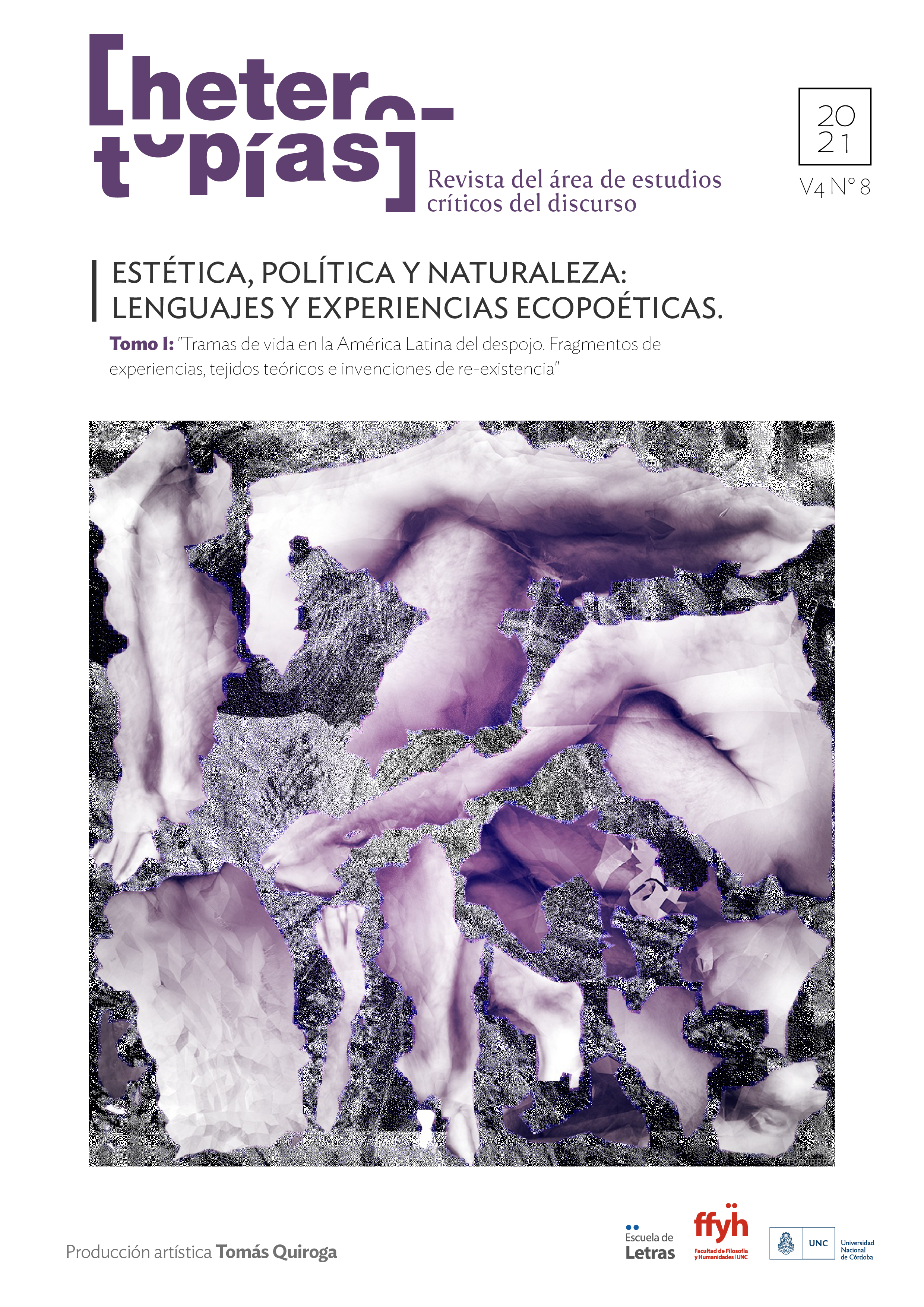I remember… Anarchivist autobiographical writings
Main Article Content
Abstract
The work raises questions about the representation of memory in certain contemporary autobiographical texts, investigating a probable emancipatory dimension produced from the interruption of the narrative structure and the chronological linearity of memories. These writings of life are approached from an anarchivist perspective, as counter-critique of an archivistic autobiographical paradigm, whether this referential, subjectivist or deconstructionist. The emergence of such writings from the 70s (as I remember by Joe Brainard and I remember by George Perec) challenge the usual approaches in autobiographical studies (focusing on either bios, autos or graphe). The antecedentes of a possible postgraphe would be in certain sides of Walter Benjamin’s –sometimes heterogeneous and fragmentary –thought and work, such as the antisubjetivism and collecting, as well as in collector and obliquely autobiographical representations of some atlas (like those of Warburg, Serres and Richter) with enumerations structures, lists, and catalogues, also present in One Way Street and in The Passages. From this perspective, we address aspects of current works of Édouard Levé, Margo Glantz, and Martín Kohan, who also were put in operation this “machine of remembering”, considering the link with digital networks (as in the case of Glantz), and the critical and participatory potentiality -because they can be copied and continued by others- that resides in these apparently banal writings of memory.
Downloads
Article Details

This work is licensed under a Creative Commons Attribution-NonCommercial-ShareAlike 4.0 International License.
Those authors who have publications with this journal, accept the following terms: Those authors who have publications with this journal, accept the following terms:
a. The authors will keep their copyright and guarantee to the journal the right of first publication of their work, which will be simultaneously subject to the Creative Commons Attribution - Non-Commercial - Share Alike (by-nc-sa) Attribution License; no commercial use of the original work or any derivative works is allowed, the distribution of which must be done with a license equal to the one that regulates the original work.
b. Authors may adopt other non-exclusive license agreements for the distribution of the published version of the work (e.g., deposit it in an institutional telematic archive or publish it in a monographic volume) provided that the initial publication in this journal is indicated.
c. Authors are allowed and recommended to disseminate their work through the Internet (e.g. in institutional telematic archives or on their website) before and during the submission process, which may lead to interesting exchanges and increase the number of citations of the published work. (See The effect of open access).
How to Cite
References
Auster, P. (2018). Introducción. En Brainard, J. Me acuerdo y otros autorretratos (pp. 9-22). Buenos Aires: Eterna Cadencia.
Ballester Pardo, I. (2018). Yo también me acuerdo: la tuiteratura mexicana en torno a Margo Glantz. En Alemany Bay, C. (Ed.) Las ficciones heterodoxas de Margo Glantz. Visiones críticas (pp. 323-339). Madrid: Visor.
Benjamin, W. (1996). La dialéctica en suspenso. Fragmentos sobre la historia. Santiago: Arcis-LOM.
Benjamin, W. (2014). Calle de mano única. Buenos Aires: El cuenco de plata.
Benjamin, W. (2015). Denkbilder. Epifanías en viajes. Buenos Aires: El cuenco de plata.
Glantz, M. (2013). Yo también me acuerdo. Academia Mexicana de la Lengua. Recuperado de https://www.academia.org.mx/noticias/item/yo-tambien-me-acuerdo-por-margo-glantz
Glantz, M. (2014). Yo también me acuerdo. La Jornada. Recuperado de https://www.jornada.unam.mx/2014/06/15/opinion/a14a1cul
Hernández Sánchez, D. (2002). La ironía estética. Estética romántica y arte moderno. Salamanca: Ediciones Universidad de Salamanca.
Huyssen, A. (2010). Modernismo después de la posmodernidad. Buenos Aires: Gedisa.
Kohan, M. (2020). Martín Kohan: La lista de recuerdos no es igual a la memoria. Página 12. Recuperado de https://www.pagina12.com.ar/265097-martin-kohan-la-lista-de-recuerdos-no-es-igual-a-la-memoria
Levé, É. (2016). Autorretrato. Buenos Aires: Eterna Cadencia.
Levé, É. (2020). Diario. Buenos Aires: Eterna Cadencia.
Loureiro, A. (1999). Problemas teóricos de la autobiografía. En Loureiro, A. (Coord.). La Autobiografía y sus problemas teóricos. Estudios e investigación documental (pp. 2-8). Madrid: Anthropos.
Monteleone, J. (2013). El deseo de narrar. En Benjamin, W. Historias desde la soledad y otras narraciones (pp. 5-44). Buenos Aires: El cuenco de plata.
Monteleone, J. (2014). Toda calle termina en un libro. En Benjamin, W. Calle de mano única (pp. 5-33). Buenos Aires: El cuenco de plata.
Perec, G. (2013) Lo infraordinario. Buenos Aires: Eterna Cadencia.
Seligmann-Silva, M. (2015). Sobre el anarchivamiento. Un encadenamiento a partir de Walter Benjamin. Constelaciones. Revista de Teoría Crítica 7, 40-59. Recuperado de http://constelaciones-rtc.net/article/view/1077
Serres, M. (1995). Atlas. Madrid: Cátedra.
Speranza, G. (2017). El libro de la semana: “Suicidio” de Édouard Levé. Télam. Cultura. Recuperado de https://www.telam.com.ar/notas/201709/204209-libro-semana-graciela-speranza.html
Tello, A. (2016). El anarchivismo de Walter Benjamin. Sobre la práctica del coleccionista y la filosofía materialista de la historia. En Aufklärung. Revista de Filosofía 3(2), 55-68. Recuperado de https://dialnet.unirioja.es/servlet/articulo?codigo=5677898
